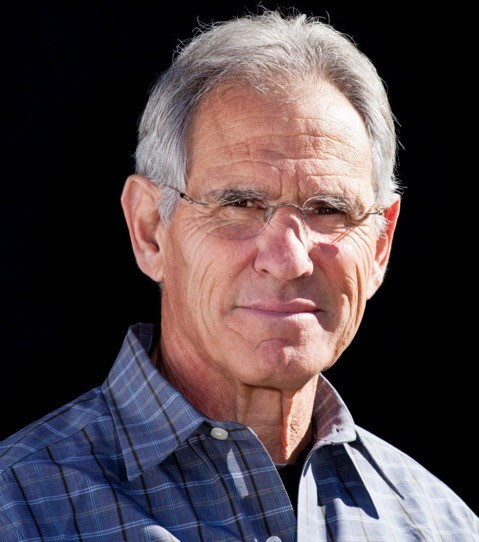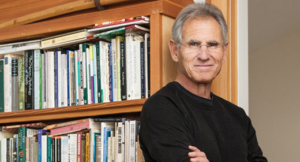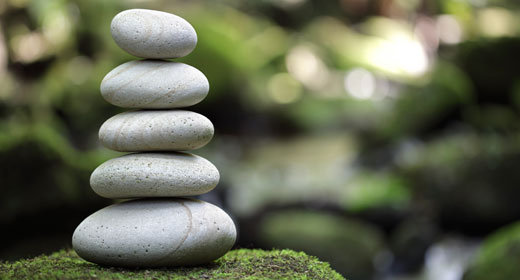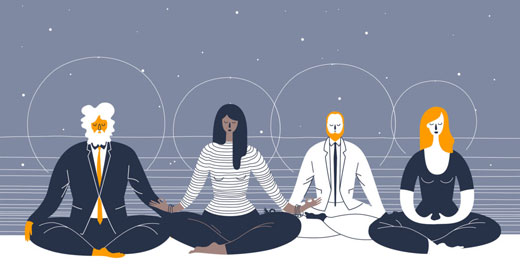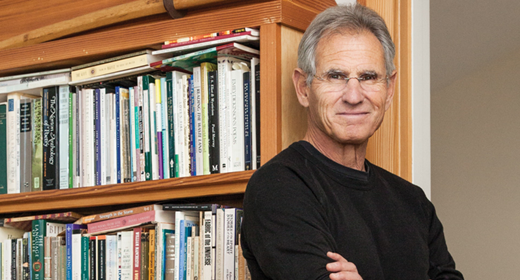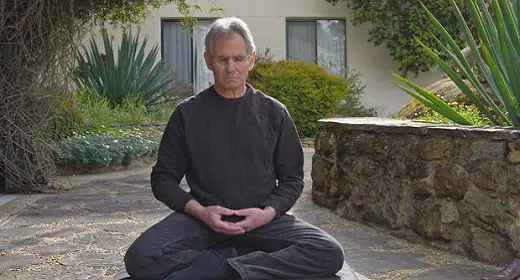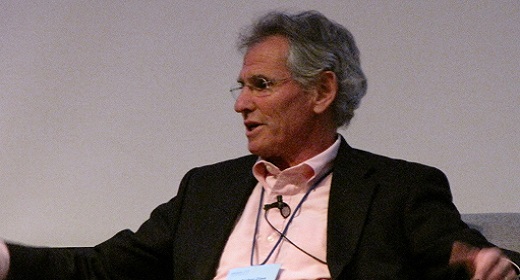Jon Kabat-Zinn is a biologist who developed the mindfulness-based stress-reduction program (MBSR) and founded the Stress Reduction Clinic in Massachusetts.
Professional Life
Jon Kabat-Zinn was born on June 5, 1944 in New York City. His father was a molecular immunologist at Columbia University Medical School, and his mother was a painter, and she sent her son to art school at the Museum of Modern Art as a preschooler. Kabat-Zinn believes that these influences in his life—the humanities and the sciences—helped him to choose his professional path. While Zinn was studying molecular biology at the Massachusetts Institute of Technology (MIT), he attended a talk by Philip Kapleau, author of The Three Pillars of Zen, that introduced Zinn to the concepts of meditation and mindfulness. Kabat-Zinn completed his PhD at MIT in 1971 and he began his career as a science teacher.
Kabat-Zinn founded the Center for Mindfulness in Medicine, Health Care, and Society, and the Stress Reduction Clinic in 1979. He is professor emeritus at the University of Massachusetts Medical School and sits on the board of the Mind and Life Institute. Kabat-Zinn has published several books and leads mindfulness retreats targeted toward clinicians, businesses, and leaders. Kabat-Zinn’s work has gained a strong following, and he was once featured on a Bill Moyers special on PBS entitled Healing and the Mind.
Kabat-Zinn is married to Myla Zinn, the daughter of activist and historian Howard Zinn. The couple have three children.
Contribution to Psychology
Kabat-Zinn is known for incorporating eastern techniques with traditional western medicine. Kabat-Zinn’s work attempts to integrate the body and mind to heal physical health symptoms as well as psychological distress, as illustrated in his 1990 book, Full Catastrophe Living: Using the Wisdom of Your Body and Mind to Face Stress, Pain, and Illness.
Kabat-Zinn has researched the beneficial effects of mindfulness, which he describes as “moment-to-moment, non-judgmental awareness,” on the physical body, the immune system, and stress. He established the Stress Reduction Clinic and developed the mindfulness-based stress-reduction program (MBSR), taught in eight-week sessions that combines meditation exercises and yoga techniques to help clients address symptoms, such as chronic pain and stress.
Research on mindfulness-based techniques are promising, and the Stress Reduction Clinic patients report a 50% reduction in chronic pain. Kabat-Zinn’s book Wherever You Go, There You Are: Mindfulness Meditation in Everyday Lifeserves as a guide for integrating mindfulness techniques into the reader’s daily routine.
Kabat-Zinn and his wife, Myla, co-authored Everyday Blessings: The Inner Work of Mindful Parenting in 1997, bringing the practice of mindfulness to the challenges and rewards of parenting.

